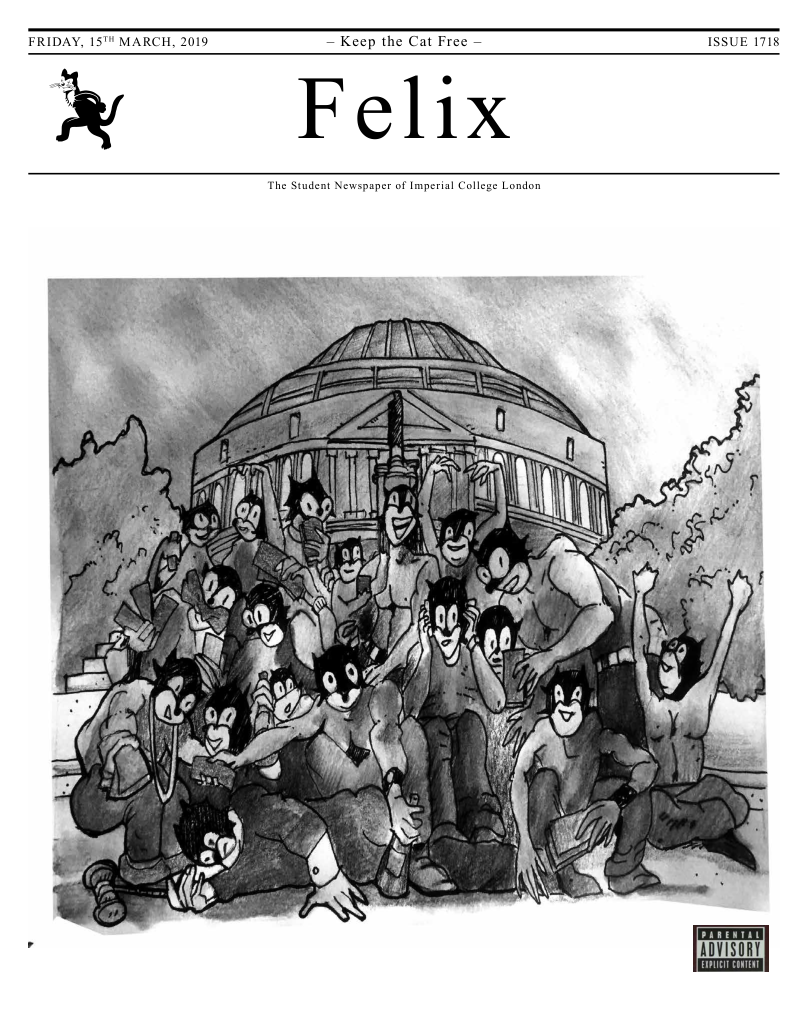A big fish in an even bigger pond
Picking up where 2017’s The Weather left off, Aussie psychedelic rockers Pond are back, and they’re bigger, better, and bolder than ever before.

This March, Australia will be the centre of gravity for psych rock and Formula 1 fans alike. But no matter how hot Ferrari are looking, in my heart I doubt that the action on the black asphalt of Albert Park will be able to overshadow what’s hiding in the grooves of the new Pond LP. Here’s why.
The sounds and stories of Australia’s biggest psych rock bands have always been intertwined. As Kevin Parker, Jesus in Sandals™ and most prominent representative of said bands, once noted: “There is no Australian psych rock scene, we’re just ten people.” For Tame Impala and Pond, the merging of sound has much to do with the fact that they used to, and to a lesser extent still do, share band members. KP used to play drums for Pond, Pond’s Nick Allbrook used to tour with Tame Impala, Pond’s Shiny Joe Ryan does Tame Impala’s visuals, and Jay Watson is the last throbbing artery connecting these bands with crossover roots – and is a permanent member of both bands. Most importantly, Kevin Parker has produced all of Pond’s albums; all of this is crucial to understanding the transition in Pond’s sound that started with the release of Man It Feels Like Space Again in 2015, and has finally completely blossomed in Tasmania.
To me, Pond has always been the slightly wonkier little sister of Tame Impala. There are several reasons for that – from Albrook’s dodgy hair colour choices to their sometimes overdistorted sounds and flippant titles (calling an album Hobo Rocket and a song ‘Heroic Shart’ might unintentionally give that impression). Perhaps it is because Pond are more of an actual band than Tame Impala (where Kevin’s singular vision is the driving force, resulting in a very homogenized musical product) that their albums have historically been a bit more all-over-the-place and in-your-face. This album changes that somewhat, bringing a more polished sound.
The themes in Tasmania are somewhat difficult to disentangle. The lyrics don’t follow a linear narrative, and seem more like little snippets from a daydream, floating on a stark blue sky. In this fashion the opener, ‘Daisy’, paints a picture that seems oh so idealistic in the first seconds. As the synthesiser strings morph tender chords from one into another, we’re placed in a land where “it’s spring and the cherry blossoms sprout,” with “fires bejewelling the South West”. All of a sudden, we’re told our subject is “smiling like he has to for the cause, for the tribe, for the boys, for the lie” and just like that the drums come in and the rest of the song unfolds as a combination of a punchy, upbeat melody and lyrics that range from slightly uncomfortable to borderline morbid. “Me and the men of the frontier stack the bodies in a heap / Jimmy grabs a beer and we wash our hands in a creek,” evokes the image of a death factory. It hints at the reciprocal relationship of “we clean ourselves by implicating nature in our filth”. Ah, that filthy black soul of capitalism. I should also mention that with the synths jumping up and down the chorus, they have definitely taken a leaf out of Currents’ book. These elements are a perfect prelude for the rest of the album.
‘Sixteen Days’ is not one of the most noteworthy tracks on the album, but it does contain a line which goes to show that the band hasn’t given up on shitstirring lyrics completely – “now I know how a suckerfish feels, shit, I better call my Dad.” Lovely! Next, the title track gives us some clues as to the album’s name. In the first two verses, the rhymes are too obvious and lazy to be that way accidentally – perhaps critiquing sloppy songwriting and empty meanings in modern music? Anyway, our subject wants a break in ‘Tasmania’: “I left my phone in Sydney / All the stress outdid me,” something which he later wishes for again in ‘Burnt Out Star’.
‘The Boys Are Killing Me’, is one of my quiet favourites on the album. The tempo, Nick’s diction, and the thickness of sound mediated by the effects used, change so many times that the song feels like a ruler twisted into the figure 8 – taut to the extreme but remaining unbroken. “Drunk but overjoyed just to be employed / By the boys / The boys are killing me” reads as if written by someone coexisting in a toxic society but glad just to fit in – a paradox of wanting change but not wanting to be left out for instigating it. Yikes!
In ‘Hand Mouth Dancer’, the political nature of the album’s lyrics is addressed, playfully acknowledging the hypocrisy that sometimes goes hand in hand with politicisation of music, and the people who demand it. ‘Burnt Out Star’ is this album’s epicentre, the magnum opus, having been released as a single long ago (so long many thought it would be a standalone single). It is a journey through sound, flashing some wonderfully poetic lines on the way. “Burnt out star, no matter where you are / try to understand you’re only a man” suggests that mankind’s collective strength should come from a realisation of individual weakness. A potent lesson hidden amongst woozy ad-libs of the number 1917 – I guess the burnt out star they’re thinking of is of the RED variety… This is to be the first allusion to revolution as a possible solution to the problems the band perceive; the other solution (escape?) is carnal desire “Oh perfect body that they’ll never tear apart / first they’ll have to tear my head from your heart”.
The final three songs reassert the band’s message and make sure that the album doesn’t just peter out. The imagery of ‘Selené’, another Tame Impala-esque tune, is the most drastic on the album. There’s drug excess - “Who took a lil’ too much speed and fucked his guts up and his teeth”, and some wonderful thoughts on… the dual separatory and uniting aspects of skin – “Love your skin, it holds your organs in / Though it holds me away from you”, all with the message of “Now you can bleed on me”. As surreal as Dali, but certainly evocative. It is followed by the irony of fate in ‘Shame’ - “It was probably just a cracker, it’s the 14th of July” – once again bringing up the theme of revolution, this time the French, but now putting it side by side with the violence that accompanied the celebrations on Bastille day three years ago. The seeds of hatred for Nick (he IS an Aussie after all) were apparently sown by evil institutions and inventions alike “I’m sorry for everything we’ve done / I’m sorry for the glory of the Queen / The glory of the gun.” Shame indeed.
The final track, ‘Doctor’s In’, starts with such a Pink Floyd-esque tone, that I almost expected to hear Waters screaming into my ears when the lyrics came in. #Disappointed. The synths sound like the underwater siren sounds that drone on just before the beginning of the last salvo in ‘Echoes’ while the guitar sounds just like the one in the intro to ‘Sheep’. Truly a psychedelic throwback. And the lyrics sound like something that the prog gods wouldn’t be ashamed to call their own, either. It paints a picture of nature and gives a sense of purity, of that quality of rebirth that only trees and birds and flowers in the spring months posses – with this taking us back to the first lines of the album, but now giving them a new twist.
The bad trip has ended, our subject has faced his fears and is ready for what lays ahead. The words of encouragement are moving, constructive, and, to me, show that the band realises that simply painting a picture of all the shitstains present all around isn’t the point of great art.
The point is to be able to point to a power of renewal, a replenishing greatness which is just waiting to be found in the nature that surrounds us, to give clues as to what might be able to make everything better. And though in Daisy they sing “sometimes you gotta rock the cradle on your own”, the rest of the album convinces us that in that cradle there is hidden the potential for all that’s good in the world. And that it will come true. “But don’t be defeated by the coming night / By the wind that’s blowing as cold as ice.” Pond, I promise I won’t! And you shouldn’t either.
-4.5 stars









